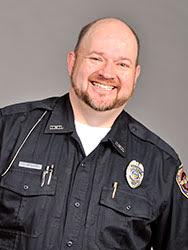I can’t believe I’m writing my final op-ed piece as editor-in-chief. I have been dedicated to The Transcript since my first semester freshman year. It feels as though I’m leaving my family, or someone I really, really like.
I struggled to think about what I should write about. I’ve already written about how this paper has improved my self-confidence and writing skills. I’ve also written about how thorough the journalism department and The Transcript, I found people that are now integral parts of my life.
So I’ve decided to write something about the recent issues concerning The Transcript and the faculty meeting.
Since I became editor in January 2015, I have always sent a reporter to cover faculty meetings.
Normally, nothing remarkable happens in them. In fact, they’re normally quite boring. But this semester, members of the faculty have taken issue with our presence. They think because we having a sharing agreement with The Delaware Gazette that our reporter is somehow connected to the Gazette. That is completely and utterly false.
Another issue is that some faculty members don’t feel comfortable with our pieces being published in the Gazette. That makes me roll my eyes, because we publish online. People from around the world read us. We are no long an insular publication like in years past. We are not out to get faculty members and start a witch hunt. The rationale I have behind covering these meetings is to let students, parents and families, and the shareholders and stakeholders, know what is going on in this institution. I don’t think it’s a lot to ask for a bit of transparency.
As I hurtle toward real-life, I have no regrets with how I’ve managed this paper. Actually, I’m extremely proud of everything I have done. My fellow editors and reporters have done everything, and more, that I’ve asked of them. I don’t know how I would’ve managed without them, to be quite frank.
This faculty meeting issue will not be solved in an hour-long meeting or a few weeks. This is obviously something that has touched the nerve of many, and there needs to be some sort of compromise. However, I will not back down in advocating for reporters to be at faculty meetings. I stand by all of my decisions.
I have put blood, sweat and tears into this publication. I don’t regret any of my sleepless nights, my anxiety attacks or mistakes I have made along the way. This paper has made me into who I am; how I identify myself at Ohio Wesleyan. It is probably one of my proudest accomplishments not only at OWU, but also in my life.
It’s a shame that the ending of my tenure as editor is being marred by controversy. But hey, I would rather go out with a bang rather than a whimper.












